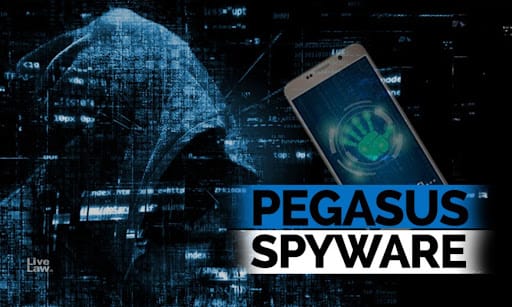
In the digital age, where technology has transformed the way we communicate, gather information, and conduct our daily lives, the issue of privacy has become paramount. The emergence of sophisticated surveillance tools like the Pegasus spyware has raised significant concerns about the infringement of privacy rights and the erosion of civil liberties. This article delves into the intricacies of the Pegasus spyware, exploring its origins, capabilities, and the profound implications it poses for individuals, societies, and democratic institutions worldwide.
Developed by the Israeli cyber intelligence company NSO Group, the Pegasus spyware was initially designed as a tool to combat terrorism and assist law enforcement agencies. However, its application expanded beyond its intended purpose, raising concerns about its potential misuse and the erosion of individual privacy. Pegasus is a highly advanced surveillance software that infects mobile devices, enabling the remote monitoring and collection of sensitive information, including calls, messages, emails, and even keystrokes, without the user’s knowledge or consent.
Implications for Privacy and Civil Liberties:
The proliferation of Pegasus spyware has profound implications for privacy and civil liberties. It undermines the fundamental right to privacy enshrined in international conventions and national constitutions. By infiltrating mobile devices, the spyware breaches the sanctity of personal communication, allowing governments, intelligence agencies, or malicious actors to access private conversations, intimate photos, and confidential information. This intrusion erodes trust, stifles freedom of expression, and chills dissent, posing a direct threat to the functioning of democratic institutions.
The Pegasus spyware has been at the center of numerous controversies, with allegations of its misuse against journalists, human rights activists, lawyers, and political dissidents. Revelations surrounding its deployment in various countries have raised serious concerns about the abuse of power and the targeting of individuals based on their beliefs, affiliations, or professional activities. The spyware’s covert nature and ability to bypass security measures make it challenging to detect and mitigate its impact.
The Road to Accountability :
Addressing the issue of Pegasus spyware requires a multi-faceted approach. Strengthening legal frameworks to protect privacy rights and ensure accountability is of paramount importance. Governments must enact comprehensive legislation that clearly defines the limits of surveillance, establishes oversight mechanisms, and imposes stringent penalties for misuse. International cooperation is crucial in regulating the export, sale, and use of surveillance tools to prevent their misuse by authoritarian regimes or non-state actors.
Additionally, technology companies play a vital role in safeguarding user privacy. They must prioritize security and invest in robust encryption and security protocols to protect user data from unauthorized access. Transparency and responsible disclosure of vulnerabilities are essential to addressing potential risks associated with surveillance technologies.
The rise of surveillance technologies like the Pegasus spyware presents a significant challenge to privacy rights and civil liberties in the digital age. Safeguarding individual privacy requires a collective effort from governments, technology companies, civil society, and the international community. Upholding the principles of transparency, accountability, and human rights is paramount in ensuring that technological advancements do not come at the expense of individual freedoms. By addressing the challenges posed by spyware and fostering a culture of privacy protection, we can strive towards a world where digital innovations coexist with fundamental rights and democratic values.
-Kaumodaki Lonkar

